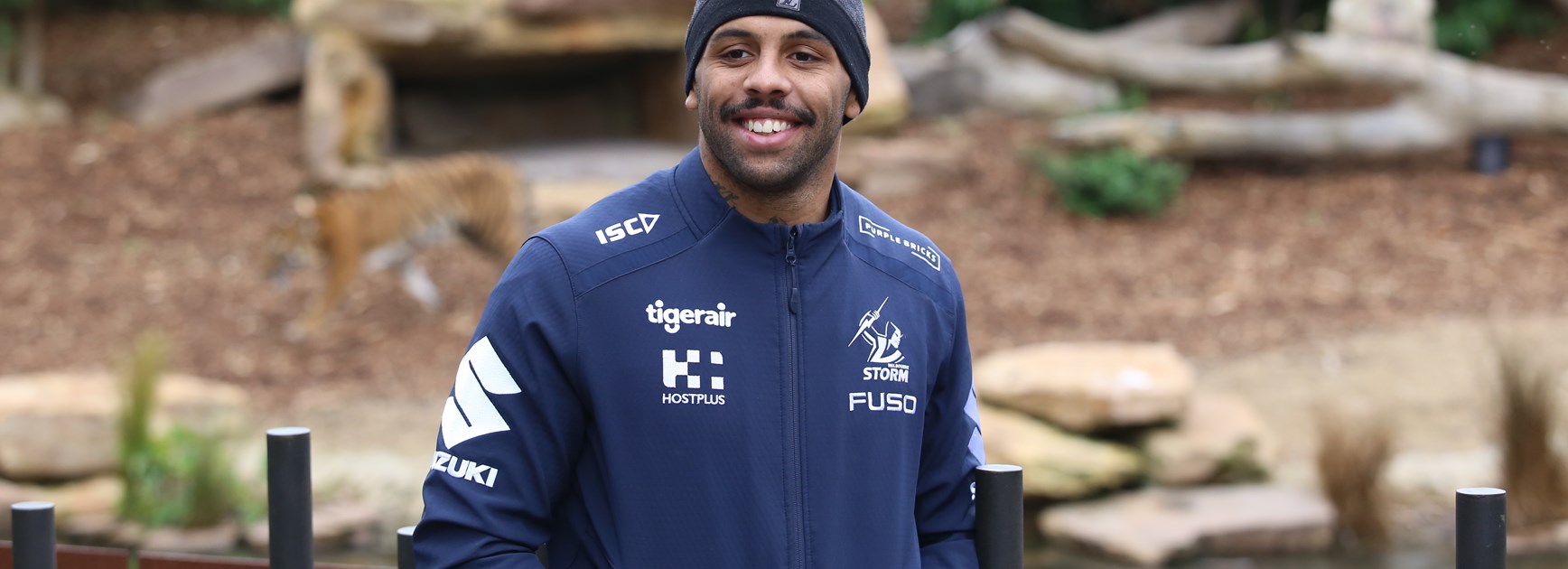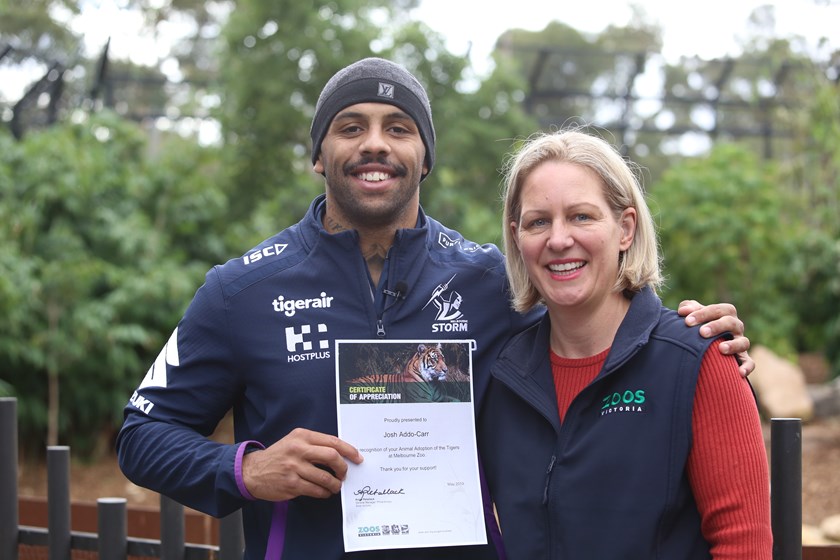
Melbourne Storm rugby league premiership player Josh Addo-Carr has taken time out from preparations for this week’s clash against the West Tigers to visit Melbourne Zoo and “adopt” a critically endangered Sumatran Tiger.
The former Wests Tiger and current Melbourne Storm superstar has committed to an ongoing monthly donation to Zoos Victoria’s Sumatran Tiger Adoption Program, which helps Melbourne Zoo care for its big cats.
Habitat destruction, through the clearing of rainforests for palm oil plantations, is the single biggest threat to the Sumatran Tiger’s survival. With fewer than 400 Sumatran Tigers remaining in the wild, the fight to save and support this iconic species from extinction is more important than ever.

"These animals are so awesome and we need to do everything we can to get them off the critically endangered list," Addo-Carr said.
"We don’t want them to disappear from the wild.
"I’m proud to be able to do my part for the Sumatran Tigers here at Melbourne Zoo and hope our thousands of Storm members and fans can help out as well by getting behind the zoo’s adoption program.
"It’s a really easy way to help the tigers survive into the future."
Melbourne Zoo Director Michelle Bruggeman said as a not-for-profit conservation organisation, she was proud of the world-class care the Melbourne Zoo team provides.
"I am continuously proud of the outstanding conservation work being done to fight wildlife extinction," she said.
"However, this could not be achieved without the support of our visitors.
"Josh Addo-Carr’s ongoing contribution will help Melbourne Zoo continue the highest quality care for our Sumatran Tigers, help to generate awareness about their plight in the wild; and, hopefully, encourage others to pledge their support."
Melbourne Zoo has been caring for Sumatran tigers since 1976, and is currently home to three Sumatran Tigers – Indrah, Binjai and Hutan
Ten Sumatran tigers have been born at Melbourne Zoo since that time and seven of those since the establishment of the Sumatran Tiger Regional Breeding Program in 1991.
The breeding program exists to create an insurance population of the species.












